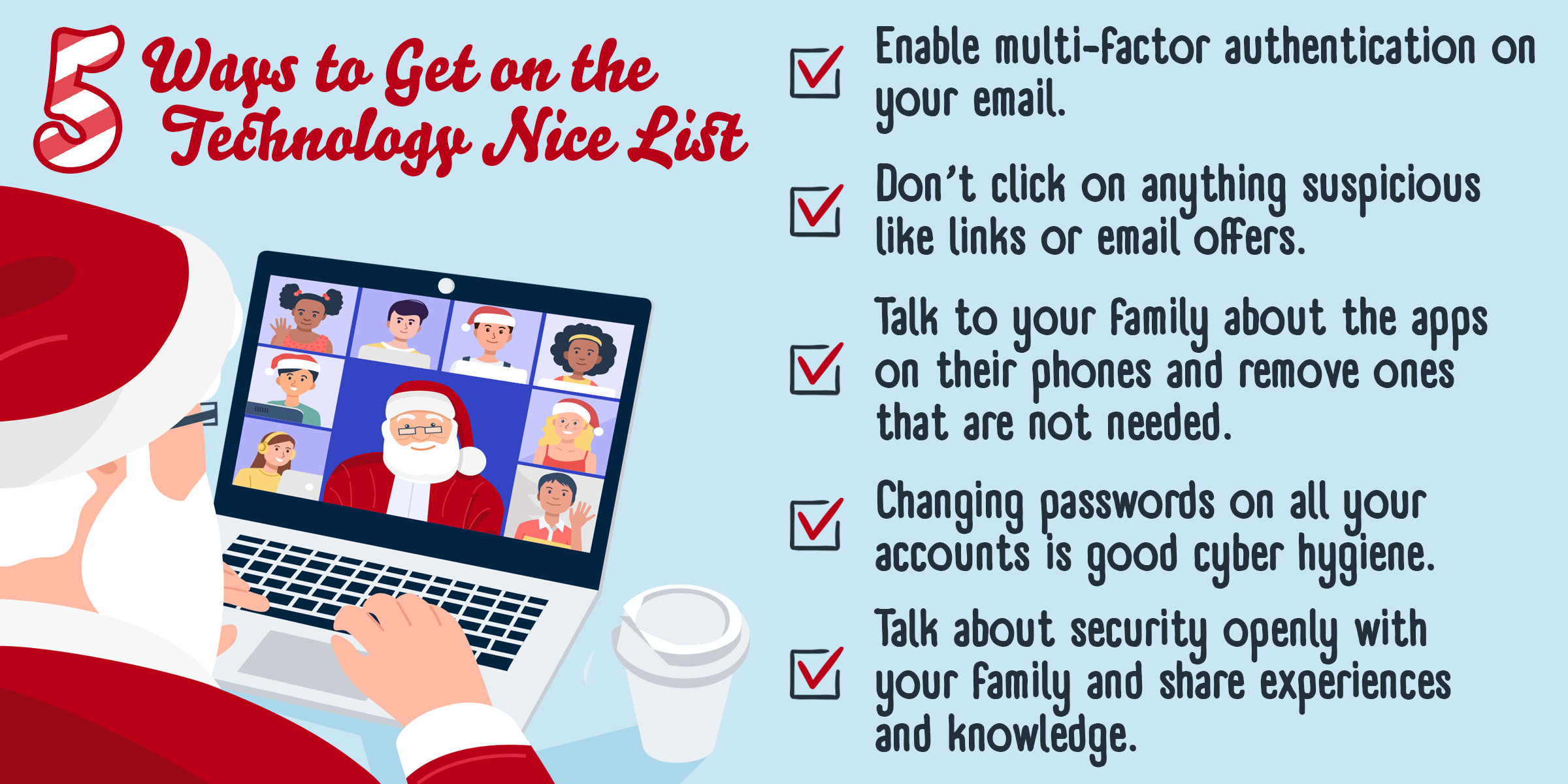When you perform a preliminary search for cybersecurity best practices, most of the results focus on business-oriented cybersecurity strategies or information about the latest cybersecurity breach.
What’s often missed is the advice for you – the individual. What should you do to protect yourself from cyber-attacks? Are there any cybersecurity topics you should discuss with your family around the dinner table?
We’ve put together a simple list of five ways to protect yourself – and your family – from the most prevalent cybersecurity issues you’ll face.
5 Ways to Get On the Technology “Nice List”

1. Enable MFA (multi-factor authentication) on Your Email
We’ve discussed MFA in the past, but mostly in a business setting. Multi-factor authentication also applies to the email, accounts, and apps you use in your personal life. MFA, also referred to as two-factor authentication (or 2FA), adds an extra layer of security to your login process. Instead of logging in with just a password, you must also provide an additional piece of information to log in. Often this occurs in the form of a code sent to your phone or email.
2. Avoid Suspicious Links or Email Offers
Suspicious emails and phishing emails are especially common around the holiday season. A key identifier of suspicious emails is the sender address. If the sender address is incorrect, or if you don’t recognize the sender, don’t click anything in the email.
Another red flag is the destination URL in the embedded links within the email. If you hover over any links in the email, you’ll see the destination URL. If the URL looks suspicious, don’t click.
One final red flag is poor grammar and punctuation. If the suspicious email is rife with errors, stop reading and delete it.
3. Be Aware of the Apps On Your Phone
On average, a person has over 80 apps installed on their phone. However, the average person only uses 30 apps per month. That means more than 50 apps remain installed but unused. Staying aware of all the apps on your phone can be difficult. Between apps we use for work, productivity tracking, exercise, weather, games, banking, and home automation, it’s understandable that a few go unused. However, these apps continue to collect and share your data.
Additionally, some apps are inherently harmful and lead you to fake login pages that capture your information and compromise your security. Stay vigilant about where you download apps from and which apps you download. Regularly removing apps that you don’t use is a great practice in data protection and good cyber hygiene.
4. Regularly Change the Password on ALL of Your Accounts
This one may sound tedious. However, password protection is often the first flaw in your cybersecurity strategy. The average person reuses a password 13 times. That means, once that password is uncovered, hackers have easy access to 13 of your accounts.
Changing your password regularly helps you stay one step ahead of cyber-criminals.
5. Discuss Cybersecurity Openly with Your Family
As the saying goes, “knowledge is power.” Sharing the information you uncover and your cybersecurity experiences with your family helps you stay abreast of the cybersecurity issues within your own home.
Final Takeaway
Cybersecurity practices are constantly evolving to protect against new threats. Starting with these simple tasks we’ve discussed will keep you protected and prepared.
If you have questions about how to protect your business, take our Dark Web Assessment and talk to our security experts today!
